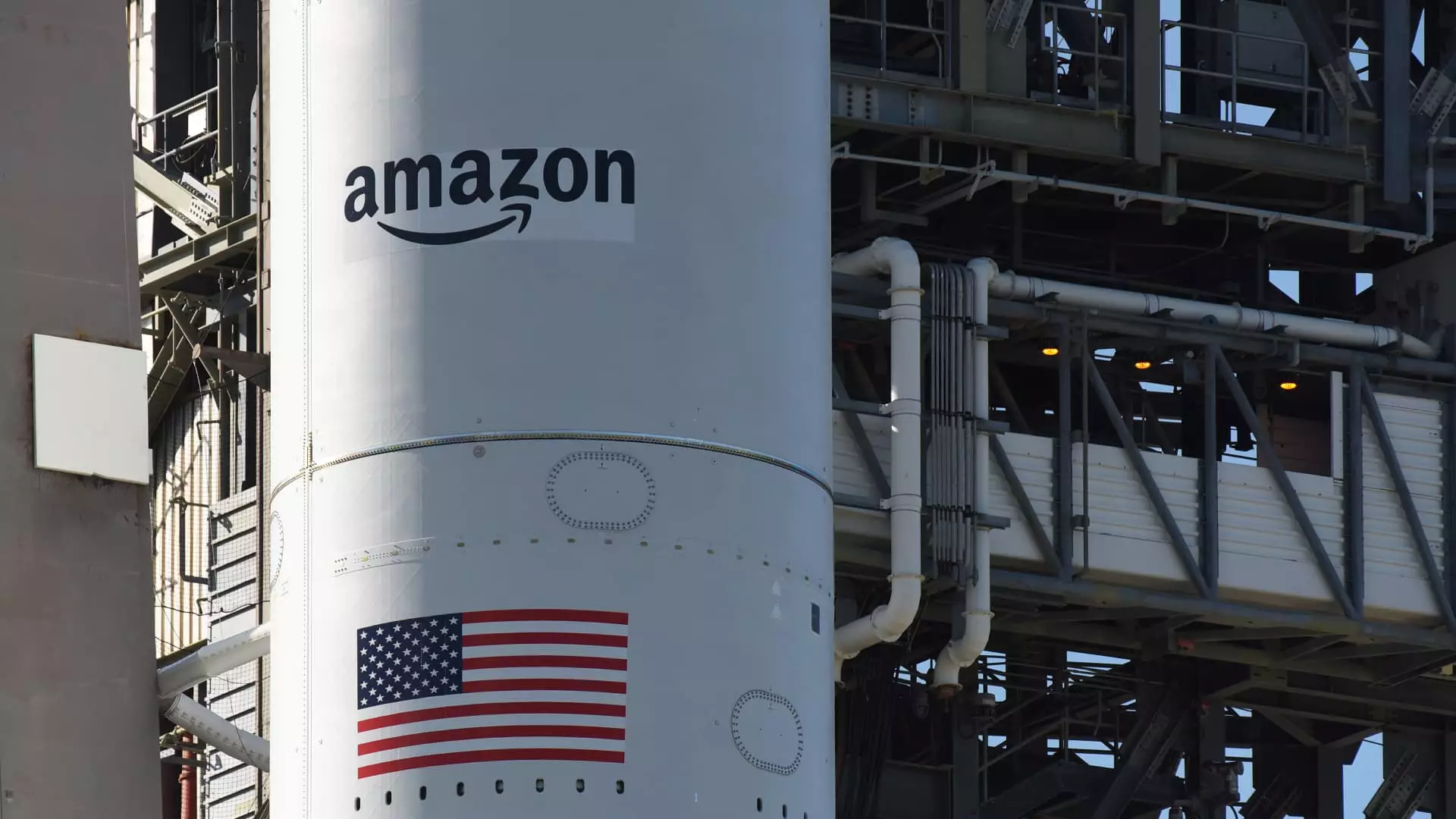In an unexpected twist of fate, Amazon’s ambitious foray into the satellite internet market suffered a setback when unfavorable weather conditions thwarted the launch of its Kuiper internet satellites from Cape Canaveral. ULA, the United Launch Alliance responsible for the launch, announced that “stubborn cumulus clouds” and heavy winds forced them to call off countdown operations, leaving a momentous event teetering on the precipice of uncertainty. This missed opportunity not only represents a significant delay in Amazon’s plans but also highlights the unpredictable forces at play in the increasingly competitive digital landscape.
The Race Against Starlink
Amazon’s venture into the satellite internet arena is far from simple. With SpaceX’s Starlink already boasting an impressive fleet of 8,000 satellites, the stakes are alarmingly high. Skimming the surface of the situation, one could argue that the race is much less about technology and much more about who can stake claim to the stars first. Amazon has positioned itself as the challenger, with a promise of high-speed, low-latency internet services aiming to serve not just consumers, but corporations and governments alike. However, ambition doesn’t eclipse reality—especially when faced with the brutal countdown dictated by the Federal Communications Commission, compelling them to launch a significant number of satellites by mid-2026.
The Complicated Interplay of Politics and Innovation
One cannot overlook the intricate networks of influence and power playing out behind the scenes. Elon Musk, the face of SpaceX, has transitioned into a quasi-governmental role, reportedly advising President Trump on efficiency improvements within the federal framework. This intertwining of business and politics gives Starlink a vantage point that Amazon’s Kuiper may struggle to overcome. The scale at which Starlink is already integrated into the government’s infrastructure provides it with both influence and legitimacy that may prove difficult for Amazon to unseat. It’s troubling to see how corporate interests can intertwine so seamlessly with government directives, as the lines between market competition and political favoritism begin to blur.
Future Prospects and Consumer Implications
If Amazon manages to get its act together—assuming it can overcome the weather and political hurdles—the implications for consumers could be profound. The introduction of more players into the satellite internet arena harshens the competitive landscape, which, in theory, should lead to better services and pricing. However, the reality often presents a more complex picture; monopolistic habits can emerge even amid competition. As more corporations vie for dominance, the consumer must navigate an increasingly tangled web of offerings, many of which may prioritize corporate profit over consumer needs and interests.
In this swirl of technological ambition, political machinations, and relentless weather systems, it remains to be seen whether Amazon can successfully launch its Kuiper satellites and compete effectively. What is clear, however, is that the implications of this race extend far beyond the launchpad — and they may shape the future of how we experience digital connectivity in a profoundly fundamental way.


Leave a Reply